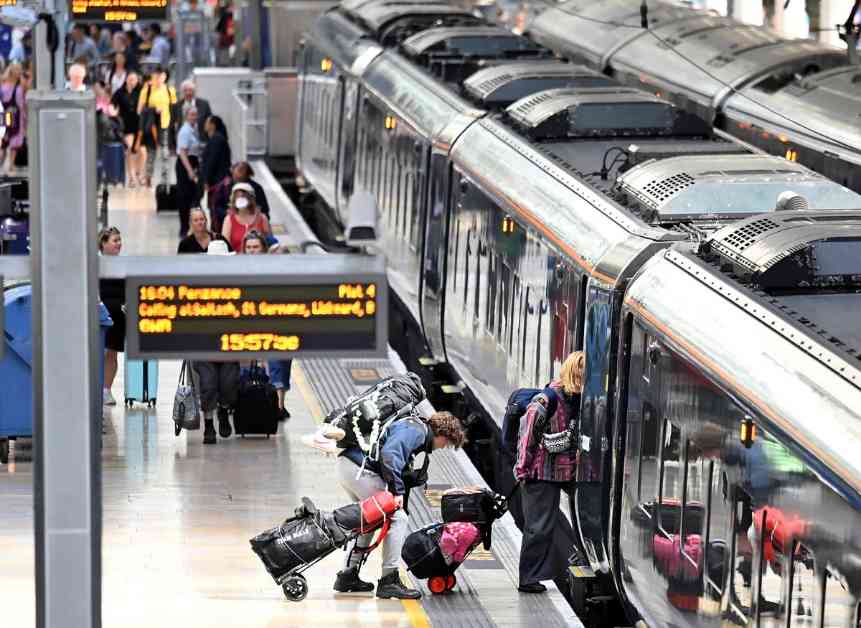Train drivers across the country can finally breathe a sigh of relief as a resolution has been reached in the long-standing pay dispute that has caused two years of misery for rail passengers. The breakthrough came after intensive negotiations between drivers’ union Aslef and the new Labour government, resulting in an overwhelming majority of members voting in favor of the proposed pay deal.
Resolution Reached
After enduring 18 days of strike action that began in July 2022, train drivers have accepted an offer that will see their salaries increase by almost 15% over the next three years. This means the average salary for a train driver, excluding overtime, will rise from £60,000 to £69,000. The resolution of this pay dispute brings an end to the longest train drivers’ strike in history and marks a significant victory for Aslef and its members.
Impact on Rail Network
The strike action taken by Aslef members has had a significant impact on the country’s rail network, causing widespread disruption for passengers and highlighting the importance of fair compensation for essential workers. The 14 English rail firms affected by the dispute, including major commuter and intercity operators such as South Western Railway, Govia Thameslink, and LNER, have faced challenges in maintaining service levels during the strike period.
Government Response
Transport secretary Louise Haigh welcomed the resolution of the pay dispute, emphasizing the government’s commitment to improving the country’s railways and ensuring a more reliable service for passengers. The agreement with train drivers paves the way for crucial reforms to modernize outdated working practices and create a better-performing railway system. The government’s willingness to negotiate and reach a settlement demonstrates a shift towards prioritizing the needs of railway workers and passengers.
Aslef general secretary Mick Whelan expressed his satisfaction with the outcome of the negotiations, highlighting the determination and resilience of train drivers in protecting their terms and conditions. He emphasized the importance of fair compensation for workers who have faced stagnant wages despite the profitability of the companies they work for. The resolution of the pay dispute allows Aslef members to focus on their core responsibilities of operating a green, well-invested, and safe public railway system.
The pay dispute between Aslef and the rail companies stemmed from a decline in rail revenue following the pandemic, leading to disagreements over the terms of a pay increase. While the Tory government insisted on implementing wide-ranging reforms to working practices before agreeing to a pay rise, Aslef advocated for an immediate pay increase without strings attached. The union’s members demonstrated their commitment to securing fair compensation through various forms of industrial action, including strikes, overtime bans, and refusal to work on rest days.
The resolution of the pay dispute represents a significant milestone in the ongoing efforts to improve working conditions and compensation for essential workers in the rail industry. The collaboration between Aslef and the Labour government sets a positive precedent for future negotiations and highlights the importance of valuing the contributions of frontline workers who play a vital role in keeping the country moving.
In conclusion, the acceptance of the pay deal by train drivers marks a positive step towards resolving the long-standing dispute and ensuring a more stable and efficient railway service for passengers. The commitment shown by both Aslef and the government in reaching a mutually beneficial agreement reflects a shared dedication to addressing the needs of railway workers and passengers alike. The successful resolution of this pay dispute sets a positive tone for future labor negotiations and underscores the importance of fair compensation and working conditions for essential workers across all industries.












